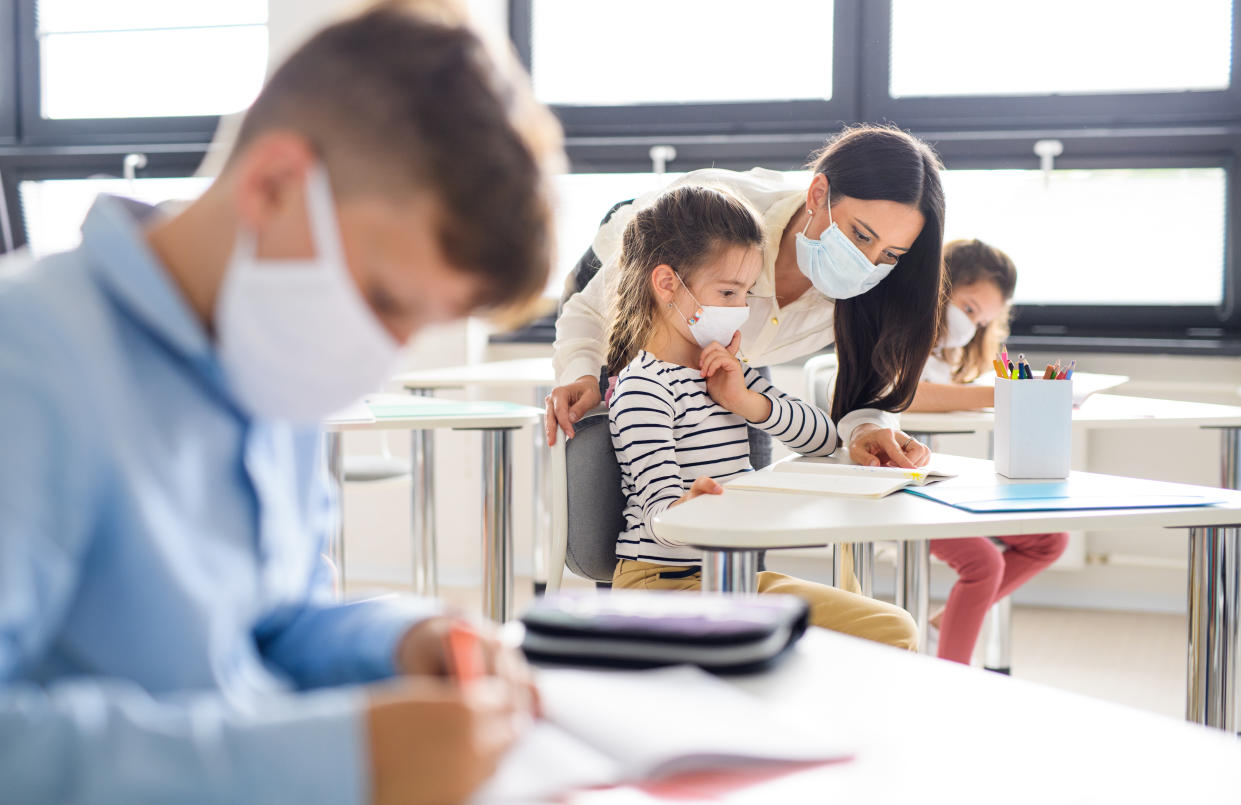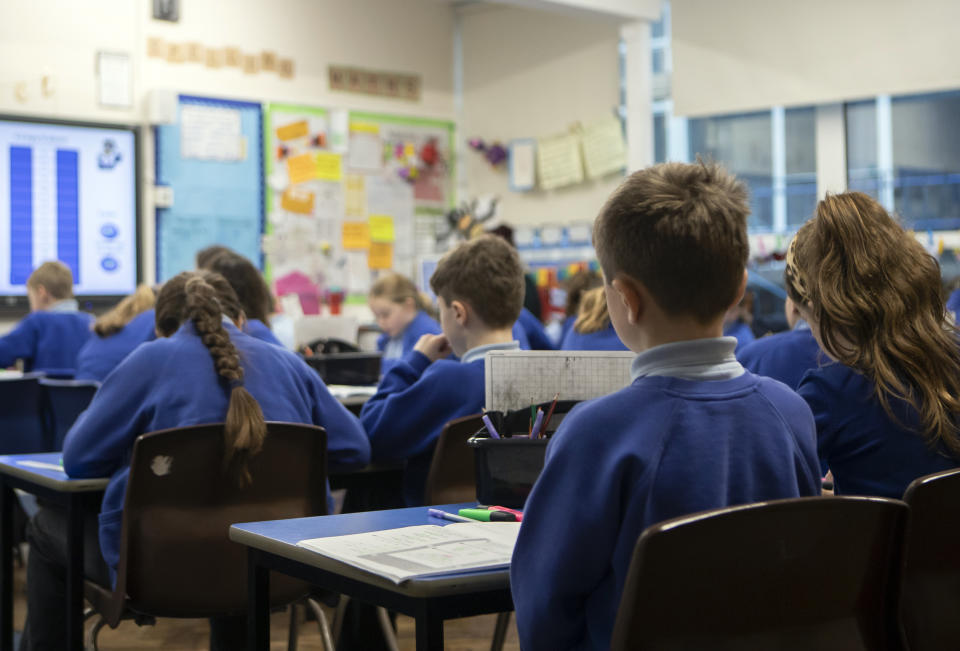School introduces all-day lessons on one subject to limit students' movement

A school in Leicestershire is planning to carry out five-hour classes on each subject from September in a bid to stop coronavirus from spreading by minimising students’ movement.
Manor High School in Oadby, Leicestershire, has drawn up a fortnightly cycle of all-day lessons for each subject for the start of the next academic year, when all schools will reopen as social distancing restrictions ease.
For example, the new plan could see the children learning maths on Monday, geography on Tuesday, science on Wednesday and so on.
Students will get exactly the same number of hours on each subject but will be taught in longer sessions, the school said.
Manor High School, which has 784 boys and girls aged 11 to 16 years, believes the new system will benefit the students beyond curbing the spread of the virus because there will be less time lost moving between classes up to five times a day.

Headteacher Liam Powell told the Times: “The basic principle is to avoid pupil and staff movement and to comply with government instructions for all children to return full-time. The school was built in 1968 and doesn’t really allow for pupils to move with distance between lessons.
“The idea is to run a fortnightly timetable with day-long lessons. So on a Monday they will have maths and it will last for the whole day, while a different class might have French all day.
“Less movement will allow a top-to-bottom clean of the school, which would be impossible if they were moving around five times a day. It might be that we come out of this and think whole-day lessons are really good.”
Powell conceded that from a child’s point of view, working on the same subject for five hours might be strenuous but that a teacher could remedy this by allowing breaks at different times and introducing new styles and methods to keep them interested.

Government guidelines state that all pupils, in all year groups, will return to school full-time from the beginning of the autumn term.
The guidelines say schools must “make judgments” about how to balance and minimise any risks from coronavirus and should use their existing resources to make arrangements to welcome all children back.
Read more: Reopening of schools 'unlikely to cause huge problems
Boris Johnson told Parliament in late June that all schools should re-open with “full attendance” in September as he announced a relaxation of social distancing rules in England.
Attendance will be mandatory again from the beginning of the autumn term.

Headteachers will be told to follow up pupils' absence and issue sanctions, including fines in some cases.
Read more: Five key sentences from scientists’ advice on reopening schools
The government wants teachers to keep classes or year groups apart in separate “bubbles”.
Schools will be asked to return "to a broad and balanced curriculum," education secretary Gavin Williamson told the House of Commons in June.
They will be asked to minimise the number of contacts each pupil has during the day, by keeping classes or whole year groups apart in separate “protective bubbles” rather than practising individual social distancing.
Ireland’s health regulator HIQA published summaries in June investigating the international evidence on immunity and the spread of coronavirus by children and found that, while evidence is limited, children are not significant contributors to the spread.
HIQA deputy chief executive Dr Mairin Ryan said: "One study suggests that, while there is high transmission of COVID-19 among adults aged 25 years or older, transmission is lower in younger people, particularly in those under 14 years of age.”
Coronavirus: what happened today
Click here to sign up to the latest news and information with our daily Catch-up newsletter


